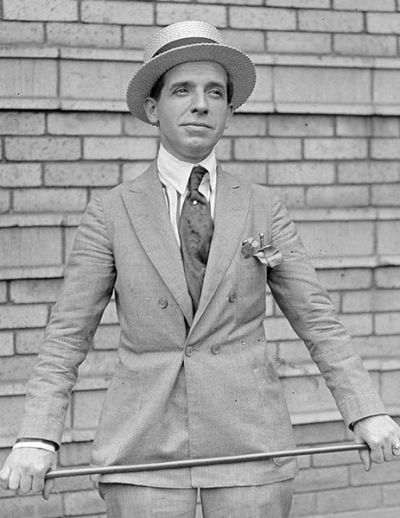At the turn of the 20th century, Italian immigration to America was starting to peak. After Italy united with Rome as its capital in 1871, economic, political and societal changes caused upheaval throughout the peninsula and masses of Italian citizens traveled west, each seeking an opportunity for a better life.
In 1903, Carlo Ponzi was a passenger on the Dominion Line SS Vancouver, sailing from Naples to the Azores and then to Boston. Born in Lugo (region of Emilia-Romagna) in 1882 into an affluent family who had lost most of their wealth, Ponzi attended the Sapienza University of Rome. He did not receive a degree, but did become aware of others who had traveled to America and returned with riches. Ponzi’s family urged him to make the journey, providing him with a train ticket to Pittsburgh to seek out a distant relative, earn his fortune and bring it back to Italy.
When Ponzi arrived in America, he did not speak English, and his small physique prevented him from a job of strenuous labor. He worked just to live, not gaining any financial advantages, but he did master speaking English and the numerous jobs he held provided him with an array of various perspectives into American businesses and consumers.
Four years after he stepped onto the Boston dock, and after working in several states on the East Coast, Ponzi moved to Montreal. Speaking Italian was to his advantage and he was hired as a teller at Banco Zarossi, a bank serving a large population of Italian immigrants. To attract customers, the bank offered double the interest of competitive banks, but a series of mishaps, involving both the bank’s owner and Ponzi, resulted in Ponzi being arrested for fraud.
In his autobiography, “The Rise of Mr. Ponzi,” Ponzi admits he had previous faults, and he provides an explanation of why he was quickly apprehended and sentenced (in 1908) to three years in jail: he was set up. In prison, Ponzi states he rose through the ranks to become the Warden’s clerk, and received an early pardon on July 13, 1910. With no business opportunities in Montreal, Ponzi decided to go back to America, and was asked to assist, as an interpreter, some fellow Italians who were taking the same train. According to Ponzi, he was arrested at the border for smuggling in illegal immigrants and sentenced to two years at the United States Penitentiary in Atlanta, GA.
Because he was fluent in Italian, English and French, Ponzi worked as a translator in the clerk’s office. At the Penitentiary, he met Charles Wyman Morse, a notorious businessman involved in numerous fraudulent businesses. Eager to leave Atlanta after his release, Ponzi headed to Alabama, to “Go West.” He landed in Blocton, a mining town with a large Italian population, and worked as an interpreter, bookkeeper and medical assistant.
The mining camp was hindered by no electricity and running water, and Ponzi presented a plan to the Town Council to bring the necessary utilities to the camp. He was working on the formation of the business and the offer of stock options when he heard about a local nurse, he did not know, who was severely burned in an explosion and needed a large amount of skin grafts. He saved her life by offering his skin, but in recovery, lost the opportunity to open his utility company.
With his knowledge of multiple languages and his numerous business skills, Ponzi traveled through the south working at several jobs. Returning to Boston in 1917 for a job with an export company, he met Rose Gnecco and married her the following year. A year later, he started his own company, publishing an international trade guide. An inquiry from Spain included an international reply coupon, prepaid postage with fluctuating exchange rates, depending on where purchased and where redeemed. Ponzi determined a significant profit could be made if a significant amount of the coupons were bought and redeemed. It’s a type of arbitrage, a legal investment for profit.
Long before Ponzi’s aspiration to be financially secure turned into a disaster for investors, others had perpetrated investment schemes, capitalizing on the human desire for easy money. In 1879, Sarah Emily Howe started the Ladies Deposit Company, and was later arrested and jailed for three years. After her release, she committed the same crime in 1884, opening the Woman’s Bank. In 1899, William Miller used similar tactics to deceive investors, offering interest rates of 10 percent a week.
The 1920s were a tumultuous time in America, especially for Italian immigrants. During the previous two decades, millions of Italians settled in America, much to the distress of American society. In 1924, an immigration bill severely restricted entry from Eastern and Southern Europe and Asia. Why wasn’t the investment scheme named after Howe or Miller? Discrimination was rampant and newspaper headlines capitalized on a negative connotation with an Italian surname.



